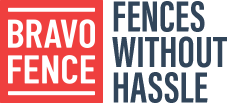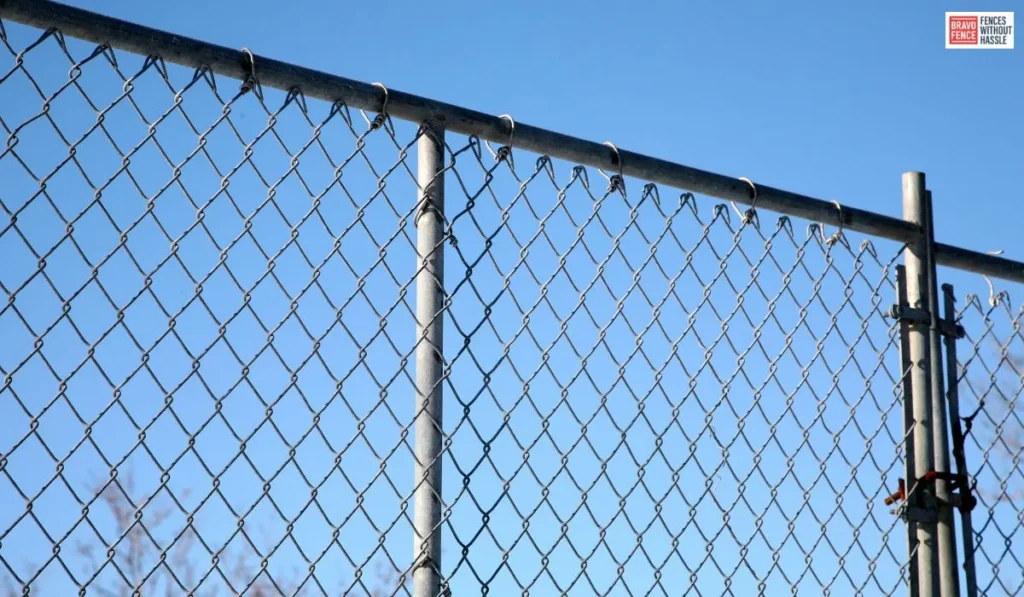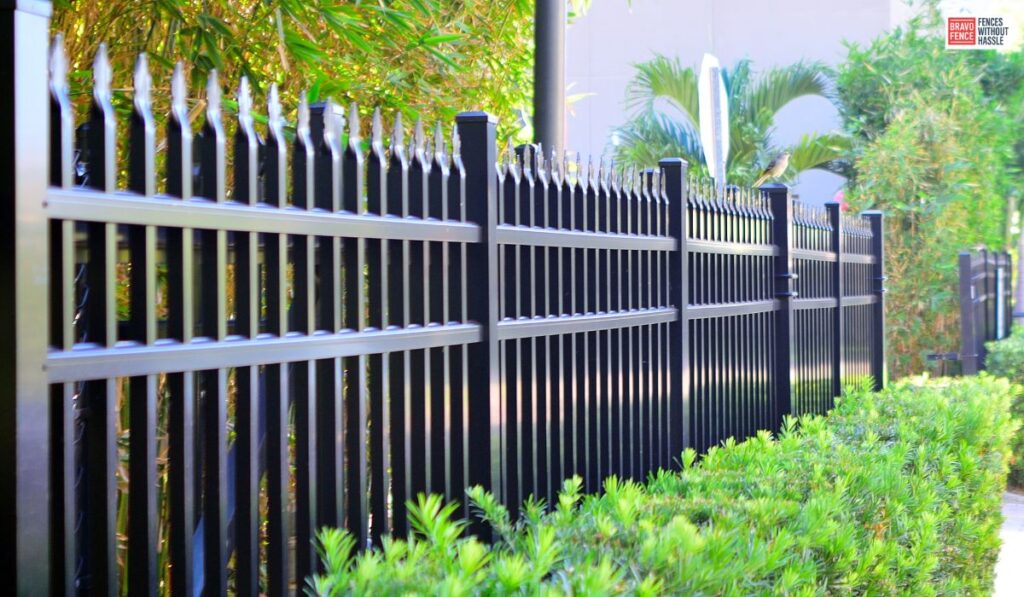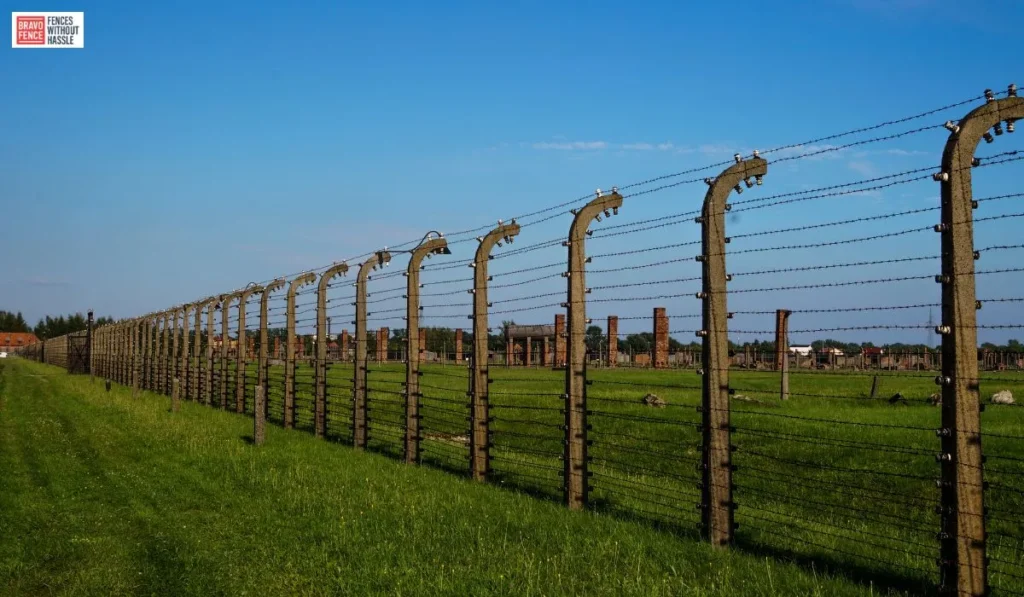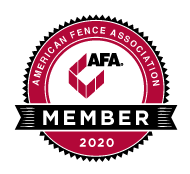In an age where safeguarding assets and ensuring the safety of employees and customers are paramount concerns for businesses, the role of commercial security fencing cannot be overstated.
Whether it’s protecting a warehouse filled with valuable inventory, securing a construction site, or delineating the boundaries of a corporate campus, the correct fencing solution can provide peace of mind and mitigate risks.
This article explores the importance of commercial security fencing and delves into various solutions available to fortify businesses against unauthorized access, theft, vandalism, and other security threats.
Understanding the Need for Commercial Security Fencing
Businesses, regardless of their size or industry, face a myriad of security challenges.
From burglary and vandalism to trespassing and liability concerns, the consequences of inadequate security measures can be severe.
Moreover, with the rise of e-commerce and the increasing value of physical assets, the need for robust security infrastructure has never been greater.
Commercial security fencing serves as the first line of defense against intruders and unauthorized access.
Beyond its deterrent effect, a well-designed and properly installed fence can regulate traffic flow, protect sensitive areas, and help maintain a safe and secure environment for employees, visitors, and assets.
Critical Considerations in Commercial Security Fencing
When selecting a commercial security fencing solution, several factors must be taken into account to ensure effectiveness and compliance with regulatory requirements:
Security Requirements :
Different businesses have varying security needs based on their location, industry, and risk profile.
Conducting a comprehensive security assessment is essential to identify vulnerabilities and determine the level of protection required.
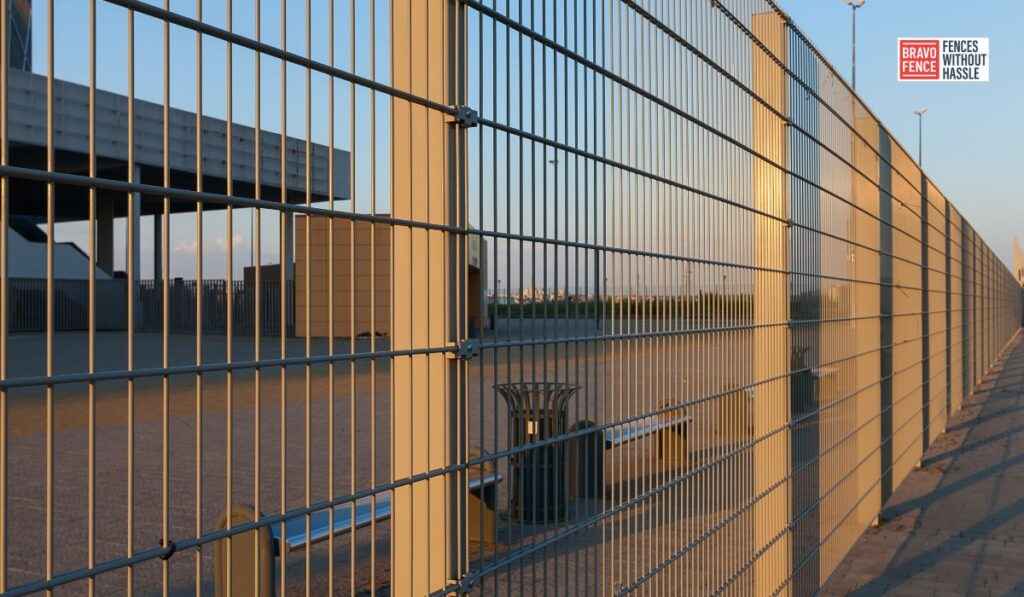
Perimeter Size and Shape :
The property’s layout and perimeter dimensions influence the choice of fencing materials, height, and configuration.
A thorough site survey can help optimize the fence design for maximum coverage and efficacy.
Durability and Maintenance :
Commercial security fencing is a long-term investment, and durability is paramount.
Factors such as material quality, weather resistance, and maintenance requirements should be carefully evaluated to ensure longevity and cost-effectiveness.
Aesthetic Considerations :
While security is paramount, businesses often seek fencing solutions that complement their branding and architectural style.
Fortunately, modern fencing materials offer a wide range of aesthetic options without compromising security features.
Compliance and Regulations :
Building codes, zoning ordinances, and industry-specific regulations may dictate specific requirements for commercial fencing installations.
Ensuring compliance with relevant standards is essential to avoid legal liabilities and fines.
Types of Commercial Security Fencing
Several types of fencing materials and configurations are available to meet the diverse needs of businesses:
Chain Link Fencing :
Chain link fences are a popular choice for commercial applications due to their affordability, durability, and versatility.
Available in various heights and gauges, they provide excellent visibility and can be customized with barbed wire or privacy slats for enhanced security.
Steel Palisade Fencing :
Steel palisade fences feature vertical steel bars with pointed or rounded tops, providing a formidable barrier against intrusion.
Their robust construction and anti-climb design make them ideal for high-security environments such as industrial facilities and critical infrastructure sites.
Wrought Iron Fencing :
Wrought iron fences offer a timeless aesthetic appeal coupled with superior strength and durability.
While they require regular maintenance to prevent rust and corrosion, they provide an elegant security solution for commercial properties, historic buildings, and upscale establishments.
Anti-Ram Vehicle Barriers :
In high-risk environments where vehicular attacks are a concern, anti-ram vehicle barriers such as bollards and crash-rated fences offer additional protection against unauthorized access and terrorist threats.
These heavy-duty barriers are engineered to withstand vehicle impact and prevent forced entry.
Electric Perimeter Fencing :
Electric perimeter fencing utilizes a low-voltage electric current to deliver a non-lethal shock to intruders attempting to breach the perimeter.
Combined with audible alarms and monitoring systems, electric fencing serves as a highly effective deterrent while minimizing the risk of physical harm.
Integration with Security Systems
Lighting Solutions:
Installing adequate lighting along the perimeter of the fencing can enhance visibility and deter intruders during the night.
Motion-activated lights or programmable lighting systems can further improve security effectiveness while minimizing energy consumption.
Intercom and Communication Systems:
Incorporating intercoms or two-way communication devices at access points enables seamless communication between security personnel and individuals seeking entry.
This facilitates verification procedures and enhances overall control over site access.
Integration with Alarm Systems:
Integrating commercial security fencing with existing alarm systems ensures a coordinated response to security breaches.
Alarms triggered by the fencing or associated sensors can alert security personnel and prompt immediate action to address potential threats.
Perimeter Identification and Signage:
Clearly marking the perimeter with signage indicating security measures in place, such as surveillance cameras and restricted access, can serve as a visible deterrent to potential intruders.
Additionally, using signage to warn against trespassing or unauthorized entry reinforces security protocols.
Integration with Building Management Systems (BMS):
Connecting commercial security fencing with BMS allows for centralized monitoring and control of various security and building automation functions.
This integration streamlines operations, enhances efficiency, and provides a holistic approach to facility management.
Backup Power and Redundancy:
Ensuring that security systems integrated with commercial fencing have backup power sources, such as generators or uninterruptible power supplies (UPS), prevents disruptions in surveillance, access control, and alarm functionalities during power outages or emergencies.
Training and Procedures:
Implementing comprehensive training programs for personnel responsible for monitoring and managing security systems ensures optimal utilization and effective response to security incidents.
Standardized procedures for incident escalation, response protocols, and system troubleshooting contribute to overall security readiness.
Integration with Emergency Response Services:
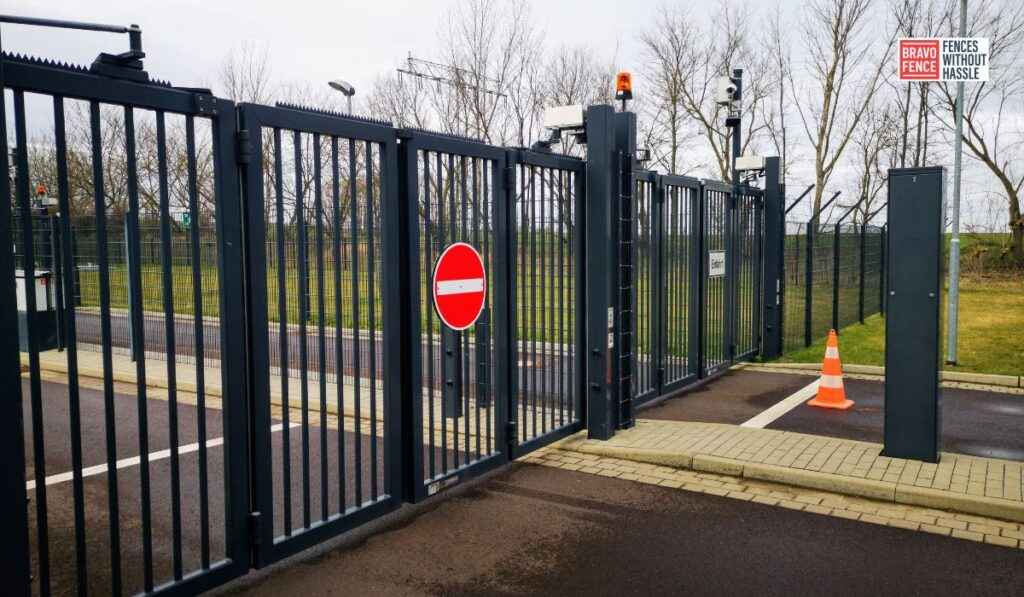
Establishing protocols for integrating commercial security fencing systems with local emergency response services, such as law enforcement and fire departments, facilitates rapid coordination and assistance during critical situations, enhancing overall security and safety measures.
Conclusion
In an increasingly complex and interconnected world, safeguarding business assets and ensuring the safety of employees and customers are top priorities for organizations across all industries.
Commercial security fencing is a critical component of a comprehensive security strategy. It provides a physical barrier against intruders and unauthorized access while deterring criminal activities and mitigating risks.
By understanding their operations’ unique security requirements and leveraging the latest advancements in fencing materials and technology, businesses can fortify their premises and create a safe and secure environment conducive to productivity, growth, and peace of mind.
Investing in commercial security fencing is not just a prudent business decision—it’s a proactive measure to protect what matters most.
FAQs
What factors should I consider when selecting a commercial security fencing solution?
Considerations such as security requirements, perimeter size and shape, durability and maintenance, aesthetic preferences, and compliance with regulations are crucial when choosing a fencing solution for your business.
What are the advantages of chain link fencing for commercial applications?
Chain link fencing is affordable, durable, and versatile. It offers excellent visibility and customization options, such as privacy slats or barbed wire, for enhanced security.
How can I ensure compliance with building codes and regulations for commercial fencing installations?
Familiarize yourself with relevant building codes, zoning ordinances, and industry-specific regulations governing fencing installations in your area. Consulting with a professional fencing contractor or local authorities can help ensure compliance.
What security enhancements can be integrated with commercial security fencing?
Surveillance cameras, access control systems, intrusion detection sensors, and remote monitoring platforms are examples of security enhancements that can be integrated with commercial fencing to enhance overall security effectiveness.
What maintenance is required for wrought iron fencing?
Wrought iron fencing requires periodic maintenance to prevent rust and corrosion. Depending on environmental conditions and the quality of the initial finish, this may include cleaning, sanding, priming, and repainting the fence every few years.
Are there any regulations regarding the height and visibility of commercial security fencing?
Building codes and zoning ordinances may specify requirements for fence height, visibility, and setback distances from property lines or public rights-of-way. Researching and adhering to these regulations is essential to avoid potential fines or legal issues.
How effective is electric perimeter fencing as a deterrent against intruders?
Electric perimeter fencing delivers a non-lethal shock to intruders attempting to breach the perimeter, serving as a highly effective deterrent. When combined with audible alarms and monitoring systems, electric fencing can significantly enhance security.
Can commercial security fencing be customized to match the aesthetic of my business premises?
Yes, many fencing materials, such as wrought iron or ornamental steel, offer aesthetic customization options to complement the architectural style of your business premises while providing robust security features.
What should I do if I encounter issues with my commercial security fencing system?
If you experience issues with your fencing system, such as damage or malfunctions, contact a qualified fencing contractor or security specialist for prompt inspection, repairs, or upgrades to maintain optimal security performance.
How can I assess the effectiveness of my commercial security fencing strategy?
Regular security assessments, including physical inspections and reviews of surveillance footage and incident reports, can help evaluate the effectiveness of your fencing strategy and identify areas for improvement or reinforcement.
